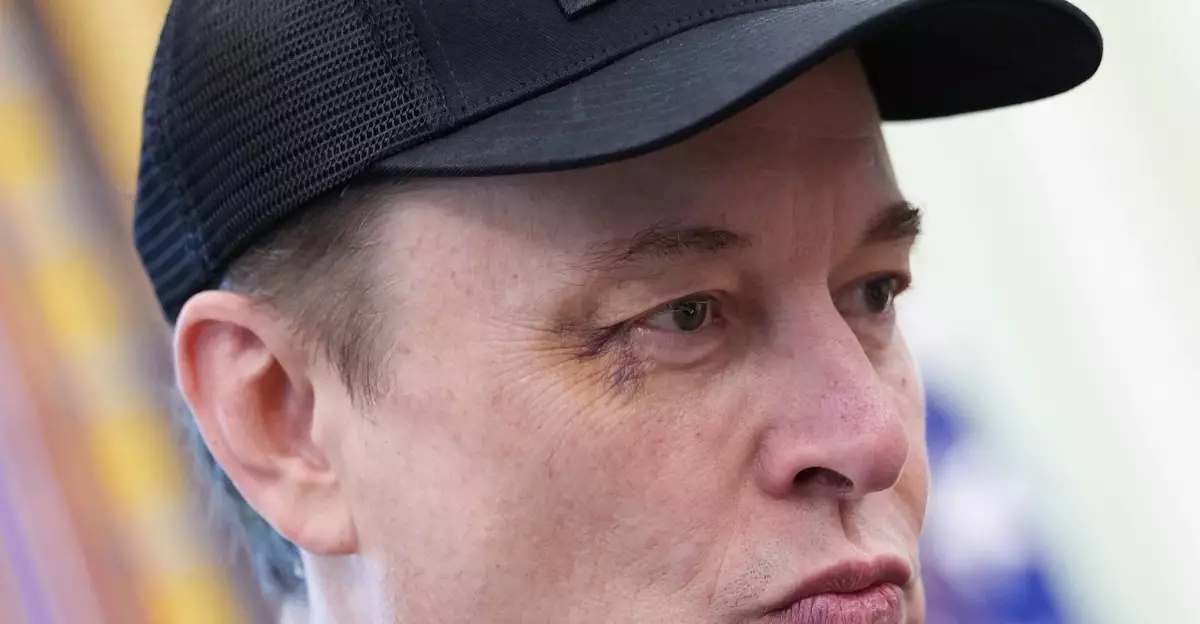Elon Musk, a name that elicits a range of reactions from admiration to disdain, is pivoting away from his role at the Department of Government Efficiency (DOGE). Despite a facade of nonchalance, it is essential to scrutinize the implications of his departure and the ramifications surrounding the notorious governmental initiative he led. Musk’s journey, marked by luminous successes at Tesla and SpaceX, has recently been marred by controversies and public disapproval, raising critical questions about his lasting impact on DOGE and beyond.
Coupled with his signature bravado, Musk’s announcement that “DOGE will live on” could be perceived as optimistic, yet it carries an underlying air of denial. The assertion that DOGE will continue its work after his leadership seems unrealistic, especially considering the challenges faced during his tenure. Musk claimed significant cuts to government inefficiency, asserting lofty goals of saving a trillion dollars, yet evidence supporting such assertions lacks credibility. The ambiguity surrounding the real impact of DOGE raises skepticism; analysis indicates that rather than efficiencies, Musk’s administration may have wrought negative repercussions that outweigh any purported benefits.
The Personal and Professional Costs of Leadership
One must also consider the personal toll Musk has faced during this turbulent period. The vivid imagery of him sporting a black eye received from a playful encounter with his son serves as a metaphor for the larger bruises he has endured while navigating this complex political landscape. His departure from DOGE comes at a time when his business ventures are struggling, with Tesla experiencing its first quarterly sales dip in almost half a decade, alongside growing disdain among the American public. These personal experiences might paint a picture of a man not only grappling with external pressures but also wrestling with self-imposed expectations.
Musk’s transformation from a business mogul into a public servant at DOGE was never going to be a straightforward path. Reports indicate that he is feeling overwhelmed and exhausted, burdened by heavy criticism that has followed his every move. The dichotomy between the ambitious image he projects and the mounting realities of his leadership suggests that Musk may not have accurately gauged the complexities of government operations. The fallout from his decisions has raised concerns about not just inefficiencies but actual humanitarian issues, with critics attributing significant humanitarian costs to his policies.
The Future of DOGE in Uncertain Hands
Yet, amidst this tumult, Musk maintains an air of optimism about the future of DOGE, suggesting its influence will grow stronger over time. Herein lies a crucial paradox—the notion that a seemingly fleeting initiative could take on a life of its own despite questionable results. By comparing DOGE’s mission to “a way of life,” Musk seems to elevate its grassroots potential, appealing to a form of loyalty that transcends traditional metrics of success. However, the reality is that the initiative remains marred by inefficiencies, stagnant progress, and an uncertain direction post-Musk.
In contrast, the essential question lingers: can DOGE indeed sustain its momentum without the charismatic yet polarizing force of Musk at the helm? The structural issues and ethical implications entwined with DOGE’s practices mean that mere rhetoric and hopeful pronouncements may not be sufficient to guide its future. The environment Musk leaves behind is fraught with skepticism, and regardless of his words about growth and persistence, DOGE may find itself struggling to adapt without his controversial leadership.
The Broader Implications of Musk’s Legacy
The broader implication of Musk’s narrative transcends the limited scope of DOGE. His time at the helm serves as a revealed fault line in the fabric of American entrepreneurship and governance. It begs the essential debate regarding what makes for effective leadership in public service versus private enterprise. The carefree attitude that has won Musk fans in tech and business circles is at odds with the gravity required in governance, especially when people’s lives and livelihoods are at stake. The ability to restore confidence in DOGE’s directives, particularly in light of potential systemic failures and adverse human costs, will significantly outweigh any flashy declarations.
Thus, Musk’s departure is not simply a personal evolution; it symbolizes a crucial transition point in understanding the intersections of technology, government, and ethical responsibility. As DOGE moves forward, whether buoyed by Musk’s lingering charisma or hindered by the weight of his administrations’ consequences, it is imperative to critically engage with the fundamental questions his tenure places at the forefront: What does effective governance look like, particularly in an age dominated by celebrity influence, and how do we ensure that tangible outcomes measure up to grand ideals?

